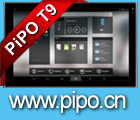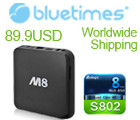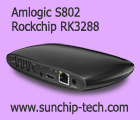Kelly from Gole presents their latest Gole1 Mini PC, featuring an Intel processor. I launched the Gole1 for them 7 years ago here: https://www.youtube.com/watch?v=9B0E9Zp4Ffc The device boasts various connectivity options such as Micro SD, USB, HDMI, and gigabit Ethernet. Kelly mentions that this product was initially launched seven years ago, with several updates and models released over the years. The latest version is currently priced at around $250 USD, with discounts for bulk order.
They also do Rockchip CPU based products, the interviewee reveals that it is specifically designed for this product. They mention future releases, with plans for Gole2, Gole3, and Gole4 models, drawing a comparison to the iPhone’s naming convention.
Kelly also discusses their history of manufacturing PC sticks with gigabit Ethernet and numerous USB ports for over five years. They emphasize the price difference between using the RK3588 and Intel processors, stating that the former is slightly more expensive, about $10 USD per unit. Potential buyers are encouraged to contact them directly for the best deals.
When asked if they are the best factory for such products, the interviewee suggests testing their samples to determine their quality. They claim to have sold over a million pieces in the last seven years, with a particular focus on the new product introduced within the past two years.
Regarding the Mini PC’s stability, the interviewee assures viewers of its reliability and performance, emphasizing its fanless and compact design. They also showcase a Mini PC without a display, highlighting its affordability.
The interview moves on to other products, including waterproof and drop-proof Rock tablet PCs, available in 8-inch and 10.1-inch sizes, with both Windows and Android OS options. The interviewee notes the stable RK 3399 CPU, and introduces the RK 3588 as the new and versatile processor, suitable for Mini PCs.
The video briefly features a live show of a Mini PC with an RK 3558 CPU, followed by an all-in-one PC with various ports, enabling connections to different devices. The interviewee also mentions a Russian customer’s substantial purchase of their products.
They conclude the interview by discussing a unique industrial tablet and the increasing popularity of such products at their https://www.golerugged.com despite economic challenges in some regions The interviewee acknowledges that the fanless design can cause some heat but assures viewers that it does not affect the device’s functionality. The company remains hopeful for continued growth in orders and mentions that their Shenzhen-based factory is constantly busy, with a dynamic R&D team consistently generating new ideas to market.
Distributors can contact Kelly at Gole here:
kelly@golechina.com
+8613427901718
Filmed at the HKTDC Hong Kong Electronics Fair using my Panasonic G9 (I would like to update to the G9ii) with 12-60mm Leica https://amzn.to/3ZXlPDQ and the Saramonic Blink500 ProX B2R https://www.youtube.com/playlist?list=PL7xXqJFxvYvi1DeQspd43hydxLddBjU8Z



